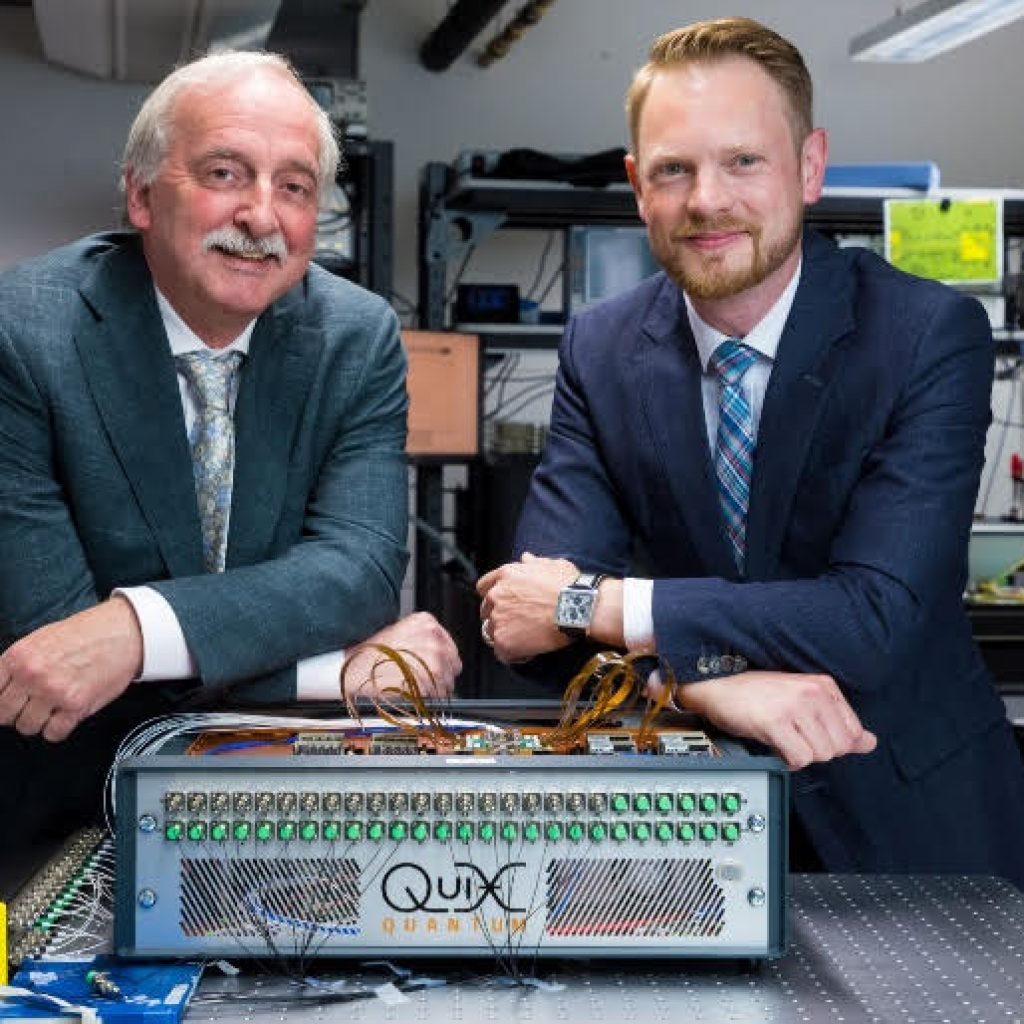QuiX Quantum named Dr. Stefan Hengesbach as its new CEO, taking over for Quix Founder Dr. Hans van den Vlekkert, who is retiring from the operational side of the business, but will stay with the company as a director and shareholder.
The move comes not long after Quix launched what it claimed was the world’s largest photonic quantum processor, weighing in at 20 qumodes.
Hengesbach took over the leadership role as CEO of Quix, based in the Netherlands, after previously serving as CEO of quantum start-up Q.ANT in Stuttgart, Germany. He has an extensive background in photonics and quantum optics, having had his dissertation awarded the Borchers Badge of RWTH Aachen University, as well as his research in the field of laser technology with the renowned Hugo-Geiger Prize of the Fraunhofer Gesellschaft and the WLT Prize of the Wissenschaftliche Gesellschaft Lasertechnik e.V. (Scientific Society for Laser Technology).
Hengesbach commented in a statement, “With the TriPleX material platform, QuiX Quantum and the manufacturing technology contractor Lionix International B.V. have developed a mature basic technology for the production of photonic circuits with exceptionally low attenuation and protected by a strong IP portfolio. As a result, we are already able to sell quantum processors and are one of the few companies in the world to record real revenues from second-generation quantum technology. This is very rare in the significantly overheated and artificially inflated quantum technology market.”
Asked by IQT News about his plans for Quix, Hengesbach commented at length via email:
QuiX Quantum has already changed its business model to offer not only processors, but also (we will not stop to sell the processors as components or scientific measurement device) entire quantum computer systems. The processors have the smallest transmission losses worldwide and excellent compatibility with single photon sources of different wavelengths. Therefore, we have already built a demonstrator of a boson sampler (non-universal quantum computer) in the EU project PhoQusing https://www.phoqusing.eu.
In the course of the next year, we would like to equip an identical system with cloud/remote access, which will enable customers to gain initial experience with quantum computers and give us a “sandbox” for many interesting algorithm ideas. Of course, we will also do this in smaller iterations, so an MVP will already be feasible in the short term. Software and Algorithm is therefore one big focus.
In parallel, we will increase the number of modes of our processors as already announced. We have already left a footprint in the quantum community – researchers all around the world appreciate the reliability of the stable processors (and the simple fact that they are operated at room temperature) and use them for quantum single photon experiments. Here, too, we will expand our software offering in the area of scientific applications.
In the area of hardware, we have also longer-term goals: In addition to special-purpose quantum computers, we would like to offer solutions for universal quantum computing in the long term. This goal is very much customer driven. Therefore one of my biggest goals is to bring customer-centricity into the quantum industry. There is still a lot of room to align market requirements and technology development. This is not only true for QuiX Quantum, but also for the whole industry. Due to my engineering background I pretty much appreciate specification sheets for different applications and detailed customer personas, as well as strong “product owners” within the development process.
What we will maintain is definitely the strong European and international orientation of the company, as well as the open and transparent communication of measurement data and results, as we do for example in our webinars. People trust us. We also want to further expand our excellent network to research groups and are particularly in the field of algorithm development and of course in the field of applications of our technology looking for strong partners. The company’s success is based on a strong ecosystem around the University of Twente and we now want to take this partnership model to a European level.
“He has both the practical and theoretical knowledge,” said van den Vlekkert, “which is vital to effectively and successfully manage the overall operations within Quix Quantum.”
QuiX Quantum B.V. was founded in January 2019 by van den Vlekkert and Dr. Jelmer Renema. The company operates fabless and currently employs 15 experts who specialize in the design and further development of photonic quantum computers.
Dan O’Shea has covered telecommunications and related topics including semiconductors, sensors, retail systems, digital payments and quantum computing/technology for over 25 years.
Photo Caption and credit: Dr.-Ing. Stefan Hengesbach and Dr. Hans van den Vlekkert with the world-record 20–mode quantum processor in the QuiX lab in Enschede. Photo Credit: Gijs van Ouwerkerk
